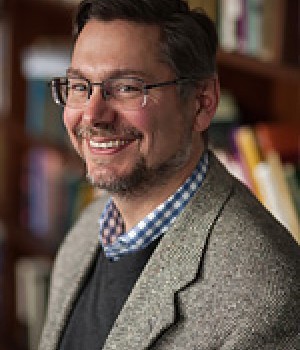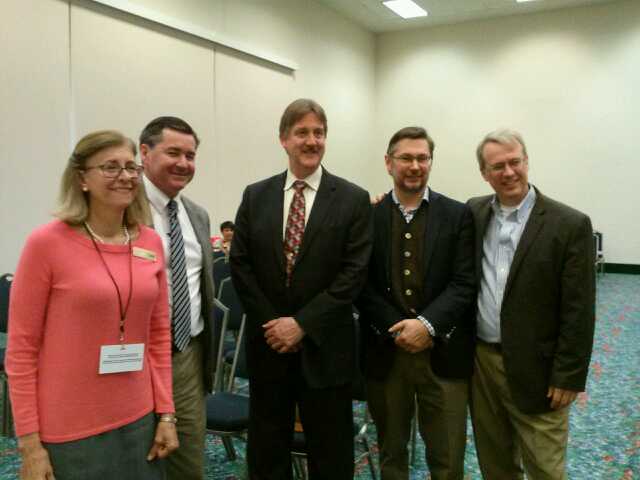An exceptional degree of collegiality characterizes today’s educational renewal. Whether you experience it under the title “Renewal of Educational, the “Classical Revival,” the “Homeschool Movement,” or another designation, the urgent mission to restore the standards of learning once common in Western Culture generates a palpable sense of collegial cooperation, support, and encouragement.
Collegial (collegialis) comes from the Latin noun collegium—community, society, or guild. Thus, the word implies an association of like-minded people. The word also rests on an assimilation of the preposition cum (with, together) with the stem leg from legare (to choose), reminding us that people choose to cultivate and value the atmosphere of collegiality.
Collegiality is particularly on my mind during “conference season.” And one of the glorious conferences ahead this summer will be the National CIRCE Conference, to be held in elegant Charleston, S.C. While in-person attendance is sold out, virtual attendance is still open and a good option.
 I mention this conference because I, like many of you, am a huge fan of Andrew Kern. His fine qualities and invaluable contributions can be listed for pages, but a top quality (to me) is his embodiment of collegiality. Yes, I know he likes to present himself as a curmudgeon of sorts, but his kindly orientation toward not just students and their teachers, but his colleagues in curriculum development simply warms my heart.
I mention this conference because I, like many of you, am a huge fan of Andrew Kern. His fine qualities and invaluable contributions can be listed for pages, but a top quality (to me) is his embodiment of collegiality. Yes, I know he likes to present himself as a curmudgeon of sorts, but his kindly orientation toward not just students and their teachers, but his colleagues in curriculum development simply warms my heart.
Before I relate my story of hearing Kern speak for the first time, let me state this: I deeply lament the destruction of collegiality in today’s colleges and universities. Once a “given” within the walls of the academy, this ephemeral, yet critical, quality has degenerated (with the exception of certain exemplary institutions) due to vicious identity politics and aggressive political correctness. When I retired early in 2006 to raise goats on our ranch in Bowie, Texas, little did I realize how fortunate I was to exit at a point when I could look back with pleasure on my SMU career. Today, the need to guard every word uttered in the classroom or exchanged with fellow-faculty would be a nightmare.
But now to the story of how I first met Andrew Kern. In the early days of our “Professor Carol” activities, Hank and I already were on the road a lot at conferences in Spring and Summer. But one week we were to be at home. We had a backlog of work at the barn and on the desk. Still, I wanted to “do” something, hear something, learn something new about this intriguing world of education we had entered. On Wednesday morning, I stumbled across a listing for a conference of the CIRCE Institute, beginning that evening in Arlington, Texas (between Dallas and Fort Worth). “I’m going to this thing tonight!” I proclaimed.
This “thing” was a reception and a keynote talk by someone named Andrew Kern. It seemed to be open to the public (or maybe I unwittingly crashed it?). So off I headed down our long dirt road for the 90-minute drive to the Arlington hotel.
With no foreknowledge of who Kern was, I was baffled by the first 20 minutes of his talk. His words were serious but delivered in an almost random manner. How could his low-keyed reflections, laced with self-effacing humor, be building a case, I wondered? Furthermore, who were these people around me, many of them young, all rapt with attention?
At about the 25-minute mark, I got it. The door blew opened, unleashing gusts of wind. For the next half hour, I was riveted to the back of my chair. Kern’s words drenched me with insights into truth, goodness, beauty, faith, and joy in an astounding manner. I could barely move by the end.
I recall that the reception followed his talk, although it might have preceded the address. Either way, the quality of the conversations going on impressed me, as did the friendliness of the crowd, and a palpable sense of energized collegiality flowing through the group. By the time I got back to Bowie, I was too tired to say more to Hank than “I’m going back tomorrow, and you should come too.” And so we did (and, yes, we properly registered!).
Well, that was our entry into the world of CIRCE. A warm working relationship with Kern and others in this organization unfolded steadily and remains an inspiration. That development fostered the increase of collegiality with more figures yoked together in this mission for educational renewal. A bit later, I was delighted to become a regular member of a panel forged with Andrew Kern, Andrew Pudewa, Martin Cothran, and Christopher Perrin. This Classical Panel began appearing at conferences under the name “Classical Education Unplugged,” and then became “Classical Education Unhinged.” (I’m only partly responsible for the unhinging!)

The Panel gives us a forum to express strong opinions and passionate resolve, to test our ideas and seek better solutions. But it is always tempered by humility and generosity—qualities that seem to have gone missing from academia. Lest you weep for me, I experienced beautiful collegiality at SMU, particularly during the first period of my professorship there, starting in 1985. But times have changed. I shudder to think how difficult it would be to teach my courses in today’s atmosphere.
That is all the more reason why I cherish the precious collegiality that characterizes our current work in this community of curriculum providers, speakers, teachers, and headmasters. All of us, regardless of different approaches, and sometimes clear differences, are engaged in a common mission. Even where there is direct competition in fields like Latin and mathematics, the eye is not taken off the ball. One feels this collegiality as tangibly as the fleece collar of a winter jacket. At every event, I am nourished by a sense of mutual respect and support.
And since tradition is a key word in all that we do, I feel moved today to tip my hat to the beautiful traditions that Andrew Kern and his associates have seeded at CIRCE. And to thank him for what he has done.



